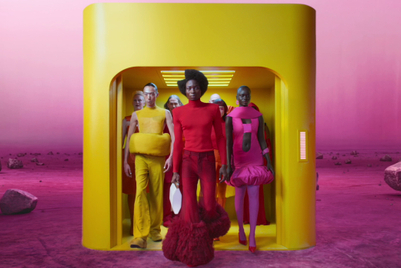Client: Hello Angel
Agency: Cheil Hong Kong
Market: Asia
Name of campaign: 'Nappy Notes'
Campaign scope: Online video, social media
Details: The brand has made some nappies that, when wet, reveal written messages such as "Love you, mummy", "Mummy, you're the best" and "Thank you for looking after me".
Campaign Asia Pacific's comments: The product is undeniably sweet, and any new mother might appreciate a kind word—even if it comes from a nappy she purchased herself. If the brand had left it at that, we'd cheer for a clever and empathetic idea.
Unfortunately, Hello Angel and its agency are marketing the nappies under the tagline "Helping mums beat the baby blues". That claim is questionable, to put it mildly. And a press release goes much further, stating:
Research results showed that mothers who used Nappy Notes were 60 percent less likely to develop postpartum depression.
That is a truly incredible claim. As in 'not credible'. Campaign asked for details, and Cheil replied that the research was done in-house by Hello Angel, which has not released the methodology or more details.
That's disappointing. Postpartum depression is a real thing, a clinical condition that can only be diagnosed and treated by a professional—sometimes with therapy, sometimes with antidepressant medication. It can be life-threatening. It's not something that a few encouraging messages can alleviate.
If you want to say that your product can reduce the occurrence of a serious medical condition, you need to 'show your work'. Preferably, you should show the work of independent scientists who have performed rigorous experiments and had their work vetted through the peer-review process—aka 'science'. Proving an effect like the one Hello Angel is claiming would probably require a study involving many hundreds if not thousands of mothers, plus a control group.
If none of that has happened, the claim is fiction. Worse, implying that the condition is so easily vanquished may discourage women who are suffering from seeking treatment they badly need.
Saying the brand has not released the methodology also excuses nothing; it merely describes the problem. And anyway, isn't it part of an agency's job to talk to client out of bad ideas?
The strapline is only slightly less egregious. Where does "baby blues" give way to postpartum depression? We don't know, but we're sure that women shouldn't hesitate to seek help even if they think they only have a case of the blues. The brand quotes unidentified psychologists who "agree that with the right love and support, most cases of the baby blues are short-lived". Even if that's accurate (no citations were provided), we doubt that messages on nappies are the kind of love and support they are talking about.
Even in a year where we've collected an alarming number of campaigns that may or may not be craven attempts to win advertising awards, this campaign stands out because of the life-or-death-nature of the issue. It's insensitive and reckless, as it trivialises the suffering of women who have had to go through postpartum depression.
Brands and agencies, we beseech you to take a step back. Not every product or campaign has to change the world. If you really want to help out with an important issue, you could—here's a crazy thought—directly support an organisation that works on that cause.
If you insist on improving society with some innovation (followed by a case-study video), please be absolutely sure you can back up your claims with solid evidence. First, you'll have to take the time to understand what 'solid evidence' really means. If you're not sure, ask some smart people.
It can be done. For proof, look no further than Samsung's 'Look at me' project (also by Cheil!). In that example, the brand and agency helped to create and test an app that tried to help kids with autism. The work was scientifically legit because it started with real academic research. We seem to remember it also managed to win a few awards.
CREDITS
Executive Creative Director: Paul Chan
Copywriter: Paul Chan
Art Director: Clara Ho


.jpg&h=334&w=500&q=100&v=20170226&c=1)
.jpg&h=334&w=500&q=100&v=20170226&c=1)
.jpg&h=334&w=500&q=100&v=20170226&c=1)

.jpg&h=334&w=500&q=100&v=20170226&c=1)



.jpg&h=334&w=500&q=100&v=20170226&c=1)





.jpg&h=268&w=401&q=100&v=20170226&c=1)


